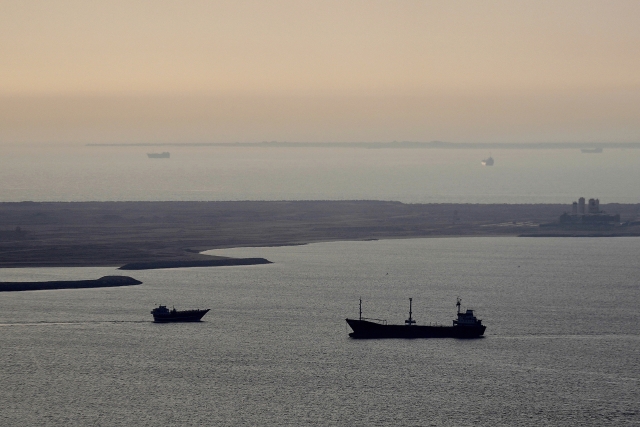Brussels and Abu Dhabi formally launched negotiations for a bilateral Free Trade Agreement (FTA) on May 28, marking a strategic pivot for the EU driven less by traditional market access and more by the urgent tremors of a fragmenting transatlantic alliance.
The European Commission's Commissioner for Trade and Economic Security, Maroš Šefčovič, met with UAE Minister of State for Foreign Trade Thani bin Ahmed Al Zeyoudi in Dubai to reaffirm their shared vision and agree on a roadmap, with substantive talks set to begin as early as June. This initiative opens the possibility for the EU's first comprehensive trade deal in the Gulf region while expanding Brussels' global network of 44 trade agreements spanning 76 countries.

A picture shows a view of the skyline in Dubai on September 12, 2024. (Photo: CFP)
"The first and foremost driver is external geopolitical influence, primarily from the US," said Professor Zhao Yongsheng of the University of International Business and Economics in Beijing (UIBE). The comment resonates against a jarring backdrop: On May 23, US President Trump announced a "straight 50% Tariff on the EU," effective June 1st – later postponed to July 9 after a call with Commission President von der Leyen. Though Trump later welcomed the UAE talks as a "positive step," his renewed warning to "enforce trade measures" underscores the fragility facing EU-US ties.
Zhao notes this "transactional whiplash" – exemplified by Trump's earlier imposition of higher tariffs on the EU (25%) than China (20%) – shattered the bedrock of transatlantic economic solidarity, forcing Brussels to diversify urgently.
A well-calculated step
Brussels didn't choose Abu Dhabi by accident. "Selecting the UAE is strategic," Zhao explains. "It's a relatively smaller, more agile partner within the Gulf Cooperation Council (GCC), making complex negotiations more manageable."
This bilateral approach contrasts sharply with the EU's stalled, 18-year effort to secure a bloc-to-bloc deal with the entire GCC. Zhao predicts a powerful "butterfly effect": "Once the UAE strikes a deal, the pressure on other GCC members, particularly Saudi Arabia, will be immense. They'll face a stark choice: pursue individual deals or revive the cumbersome GCC-wide process."

Shipping containers stacked at the Rhine-Neckar commercial port in Mannheim, one of the most important inland ports in Europe. (Photo: CFP)
The June negotiating rounds will prioritize tariff reductions on goods and enhanced access for services, digital trade, and investment flows – but the true ambition lies elsewhere. Both sides explicitly target renewable energy, green hydrogen, and critical raw materials as strategic sectors.
"This isn't about traditional goods or services," Zhao emphasizes. "The UAE seeks EU technology in precisely these growth areas." Brussels, confronting resource scarcity and climate deadlines, views the UAE as vital for securing minerals and advancing its green transition – an alignment reflected in Šefčovič's promise of "tremendous business opportunities."
A deal deemed almost time-sensitive
While FTAs often languish for years, Zhao anticipates unprecedented speed: "Given the urgency fueled by US-EU friction, I expect a deal within a year, possibly by mid-2026." The July 9 deadline for Trump's postponed 50% tariffs injects acute pressure, making rapid economic resilience-building imperative for Brussels.
The deal's impact extends beyond the Gulf. Given the UAE-EU trade volume is under $70 billion – too small to provoke major concern in Washington, according to Zhao, who believes the direct effect on the US will be minimal, but the FTA, if established, would lead to diversifying factors in the global supply chain.

A cargo ship approaches a port near Dubai, United Arab Emirates on April 7, 2025. (Photo: CFP)
"The UAE is a crucial, open-minded hub linking China and Europe," Zhao observes. Enhanced EU-UAE cooperation in renewables, hydrogen, and critical minerals – sectors where China holds competitive advantages – could accelerate China-EU coordination, particularly across third markets like Africa, where both seek resource access and green infrastructure partnerships.
"China-EU cooperation in critical raw materials finds a potential pathway here," Zhao suggests. The UAE's capital and logistics prowess could catalyze this new tripartite dynamic in green supply chains.
The EU-UAE FTA negotiations represent a barometer of world order in flux. With a mercurial US ally weaponizing tariffs, Brussels bets that a swift Gulf deal can catalyze regional engagement, secure critical resources, and subtly reshape economic corridors. As von der Leyen hailed a "significant milestone," Europe's scramble for anchors in a transactional world enters a decisive phase.
Reporter: Guo Zedong
Editor: Yuan Zixiang, James, Shen He
















